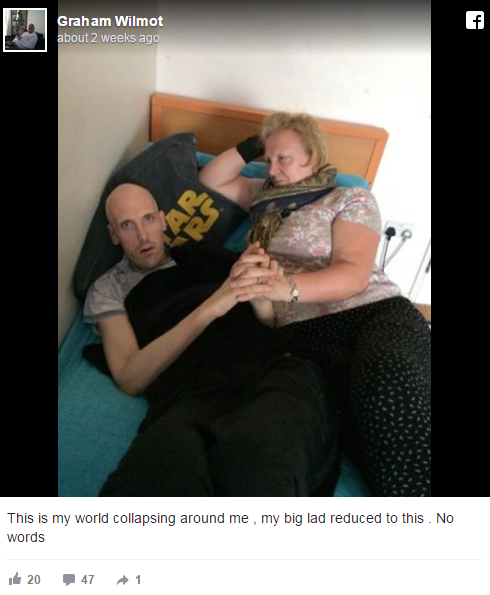Early-Onset Dementia Symptoms, Treatment: UK Man, 40, Becomes One Of Youngest To Die Of Frontotemporal Type

A United Kingdom teacher became one of the youngest people to die from a rare form of early-onset dementia. Gareth Wilmot, 40, was diagnosed with frontotemporal dementia in 2012, according to the BBC.
“We have always assumed it was a disease that affected older people,” Gareth’s father, Graham, told the BBC. “In the worst possible way we had our eyes opened.”
Read: Why Americans Have A Lower Life Expectancy, From Increasing Rates Of Heart Disease To Alzheimer's
What Is Frontotemporal Dementia?
Frontotemporal dementia is an umbrella term for a group of rare disorders that cause nerve cell damage in the areas of your brain behind your forehead or ears. These regions are vital to your personality, behavior, and language, according to Mayo Clinic. You may even hear the condition referred to by it’s original name, “Pick’s disease.” Arnold Pick was the physician who identified the first case of the disease in 1892. It’s typically misdiagnosed as Alzheimer’s disease; however, one of the key differences is that frontotemporal dementia generally occurs between 40 to 45 years old, whereas, Alzheimer’s disease is more common as people grow older.
Signs And Symptoms
Signs and symptoms of the debilitating disease vary from person to person, and also depend on which region of the individual’s brain is affected. The condition affects behavior, speech, language, and movement. Common behavior changes include loss of interpersonal skills, lack of judgement, decline in personal hygiene, change in appetite, and lack of awareness or thinking. There are several different ways speech and language can be affected, such as finding the right word to use, losing knowledge of word meaning, or misusing pronouns and having trouble constructing sentences. Rare subtypes of the disorder can also affect various forms of movement and lead to muscle spasms, poor coordination, and difficulty swallowing.
Diagnosis And Treatment
A majority of the people diagnosed with frontotemporal dementia have no family history of dementia. In its early stages, it's often difficult to pinpoint because it poses many similar symptoms of other conditions. To identify the disease, a blood test is usualy done to rule out other conditions. Furthermore, a neuropsychological test is used to identify the type of dementia at an early stage, and lastly, various brain scans will help seek out any visible abnormalities, like clots or tumors.
There’s currently no specific treatment for any type of frontotemporal dementia; however, there’s certain medications used to improve quality of life, according to the Alzheimer’s Association. Those who receive a diagnosis will eventually require 24-hour care.
For more information about the devastating group of disorders, check out the video below:
See also: Dementia Research 2017: Caffeine Is Among 24 Compounds That May Prevent Dementia, Study Says



























